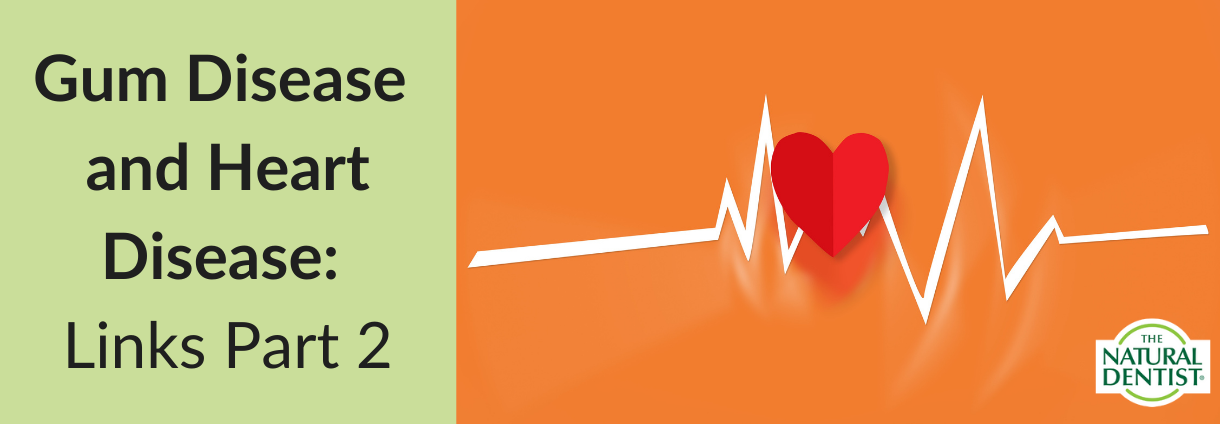Gum Disease Links Part 2: Heart Disease
May 18th, 2021

Gum disease (or periodontitis) typically occurs when untreated plaque on your teeth causes an infection and damages the soft tissues around your teeth. One of the most common symptoms of gum disease is swollen or inflamed gums.
Researchers believe that the bacteria present in gum disease can travel throughout the body, triggering inflammation in your heart’s vessels. This link between gum disease and inflammation can precede heart attacks, strokes, and sudden vascular events.
WHAT IS HEART DISEASE?
Heart disease refers to several cardiovascular conditions, including coronary artery disease, cardiac arrest, stroke, arrhythmia, congestive heart failure, and more. It can occur in your blood vessels when there is a plaque buildup. This buildup can cause narrowed or blocked blood vessels, which can lead to various cardiovascular events, like a heart attack.
LINK BETWEEN GUM DISEASE AND HEART DISEASE
Research indicates that people with gum disease are twice as likely to have heart disease, and conversely, people who are diagnosed with acute ischemic stroke are more likely to have gum disease. The most probable link between gum disease and heart disease is oral bacteria.
Gum infections can spread to your heart when bacteria from the mouth enters your bloodstream through your gums. Research shows that when the bacteria Streptococcus gordonii sticks to fatty plaques in the bloodstream, it can cause blood clots and other serious heart problems because it triggers an inflammatory response that causes blood vessels to swell and reduces blood flow.
Additionally, people with heart valve disease are particularly at risk of infection when gum disease is present, states Dr. Marietta Ambrose, Assistant Professor of Clinical Medicine at the University of Pennsylvania’s Perelman School of Medicine.
TIPS TO PREVENT GUM DISEASE
Even though researchers are still not positive whether there is a direct cause and effect between gum disease and heart disease, the link between them is strong enough that you should make your oral health a priority. Here are some tips on how to prevent gum disease:
- Brush your teeth at least twice a day
- Use a gentle, SLS-free toothpaste with aloe vera
- Rinse with an antigingivitis/antiplaque mouthwash after you brush
- Clean between teeth once a day to remove plaque
- Avoid foods that cause inflammation
- Reduce refined sugar and refined carb intake
- Receive regular cleanings from your dentist
When you follow these steps for preventing gum disease, it not only helps you avoid bleeding gums, but it can also help reduce your risk of heart disease. Adults ages 65 and over are more likely to experience heart disease, so it’s essential to pay attention to your gums and oral health as you get older.
GUM DISEASE CAN LEAD TO OTHER HEALTH PROBLEMS
If you ignore the signs and symptoms of gum disease, you may be setting yourself up for a number of health complications down the line, including heart disease. In the first part of our series, we took a look at the connection between gum disease and COVID-19. Next up: the link between gum disease and cancer.
Treat Bleeding Gums Now with The Natural Dentist Healthy Gums Antigingivitis Rinse.

 Buy Now
Buy Now Where To Buy
Where To Buy


